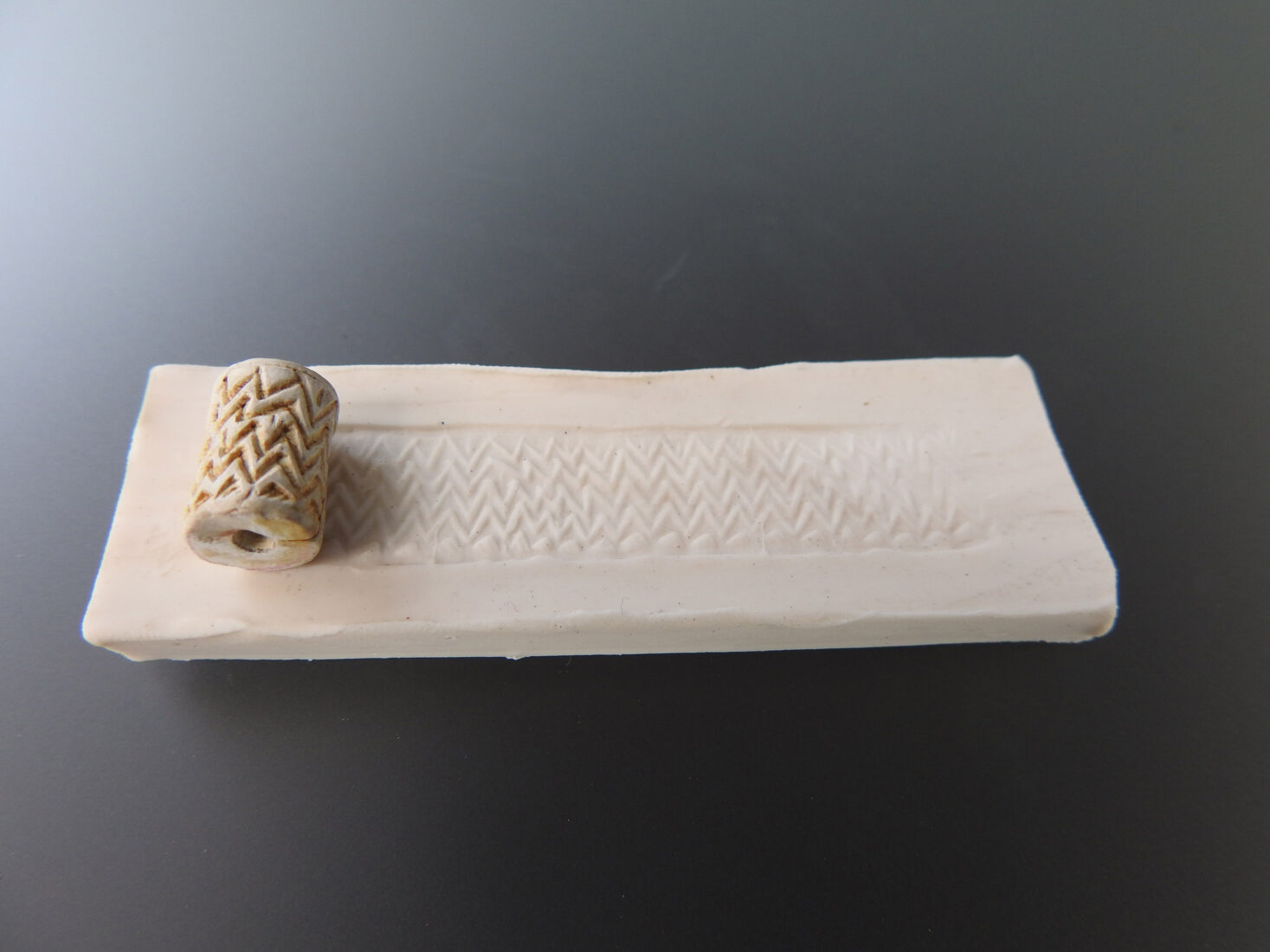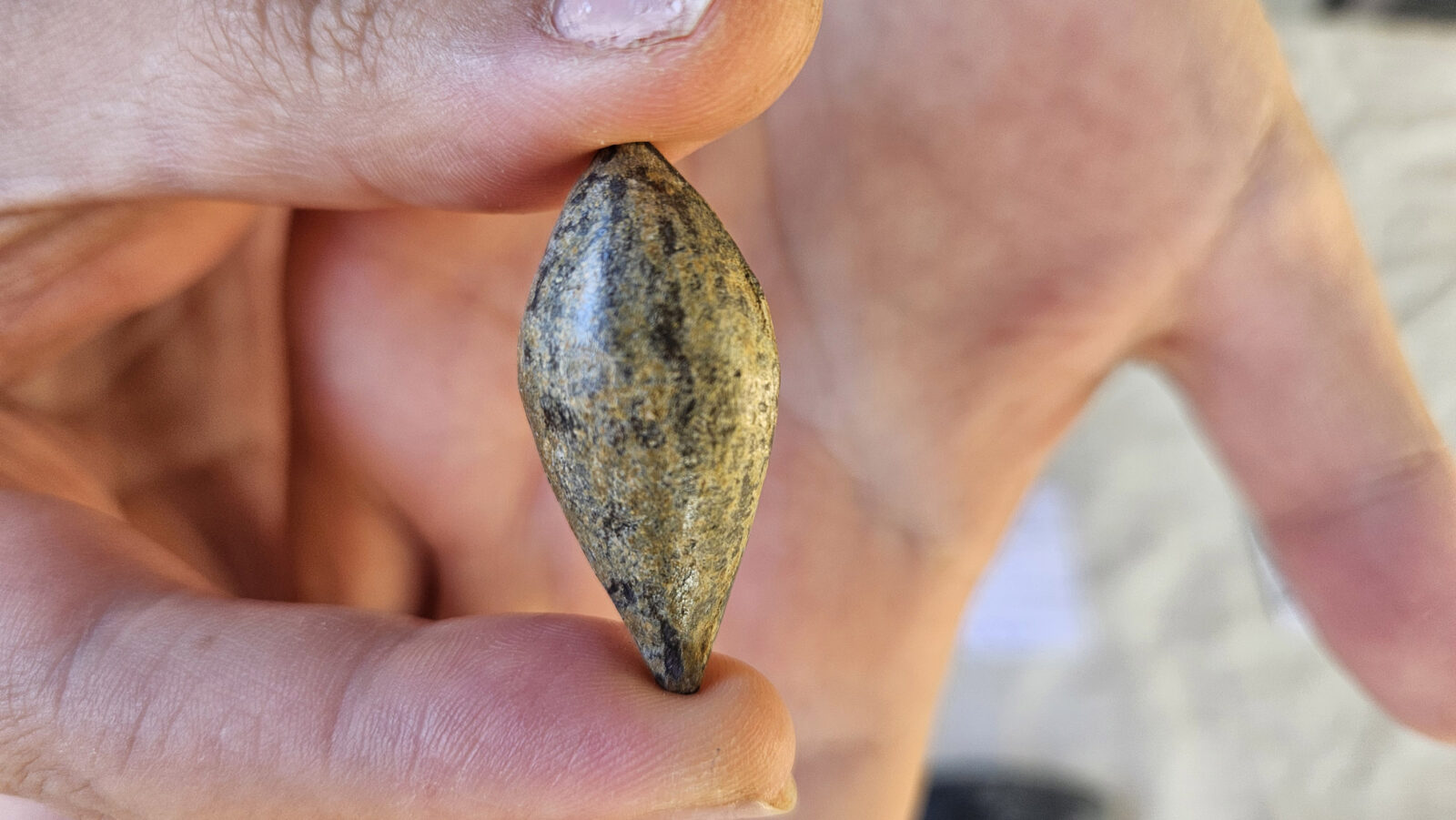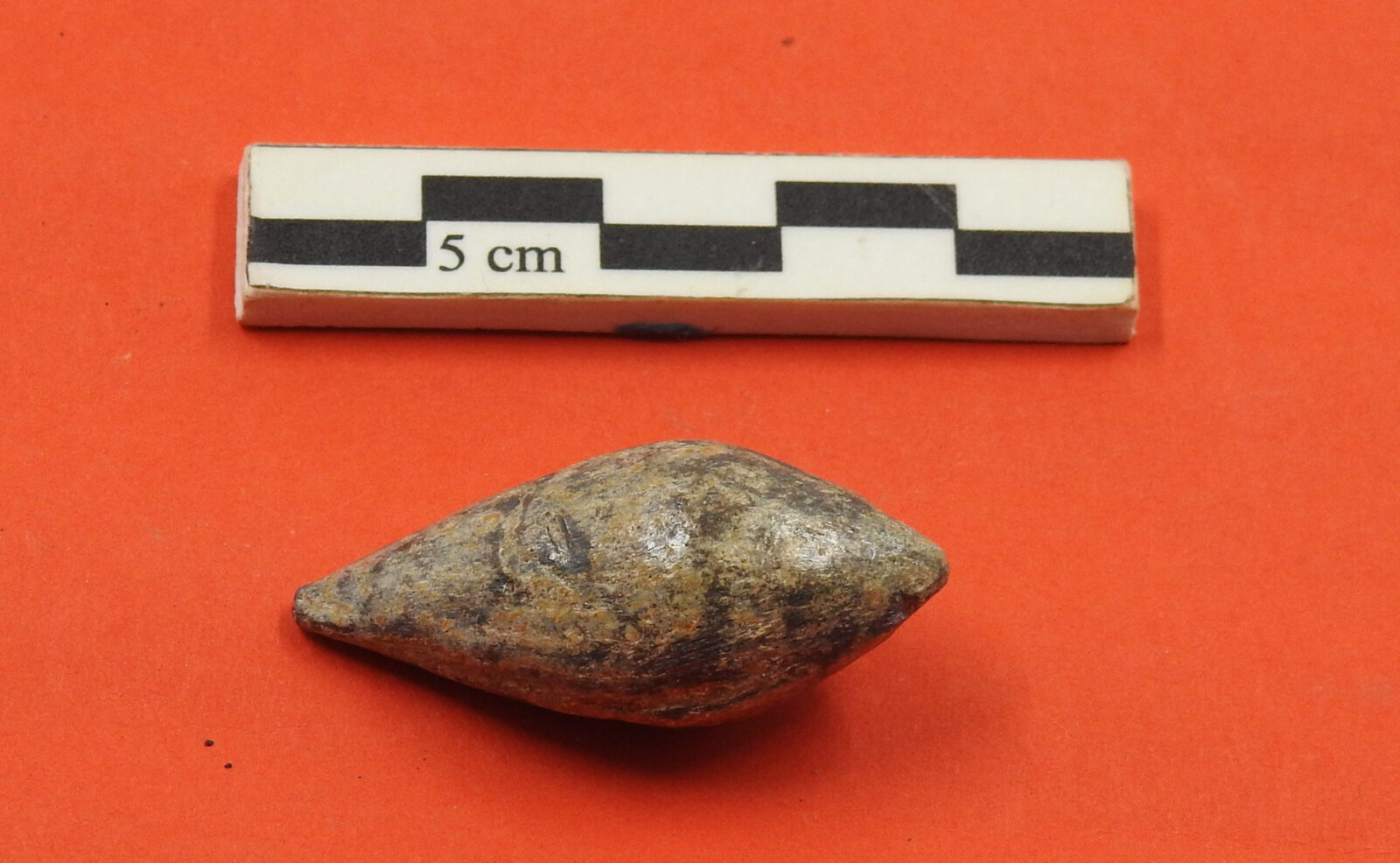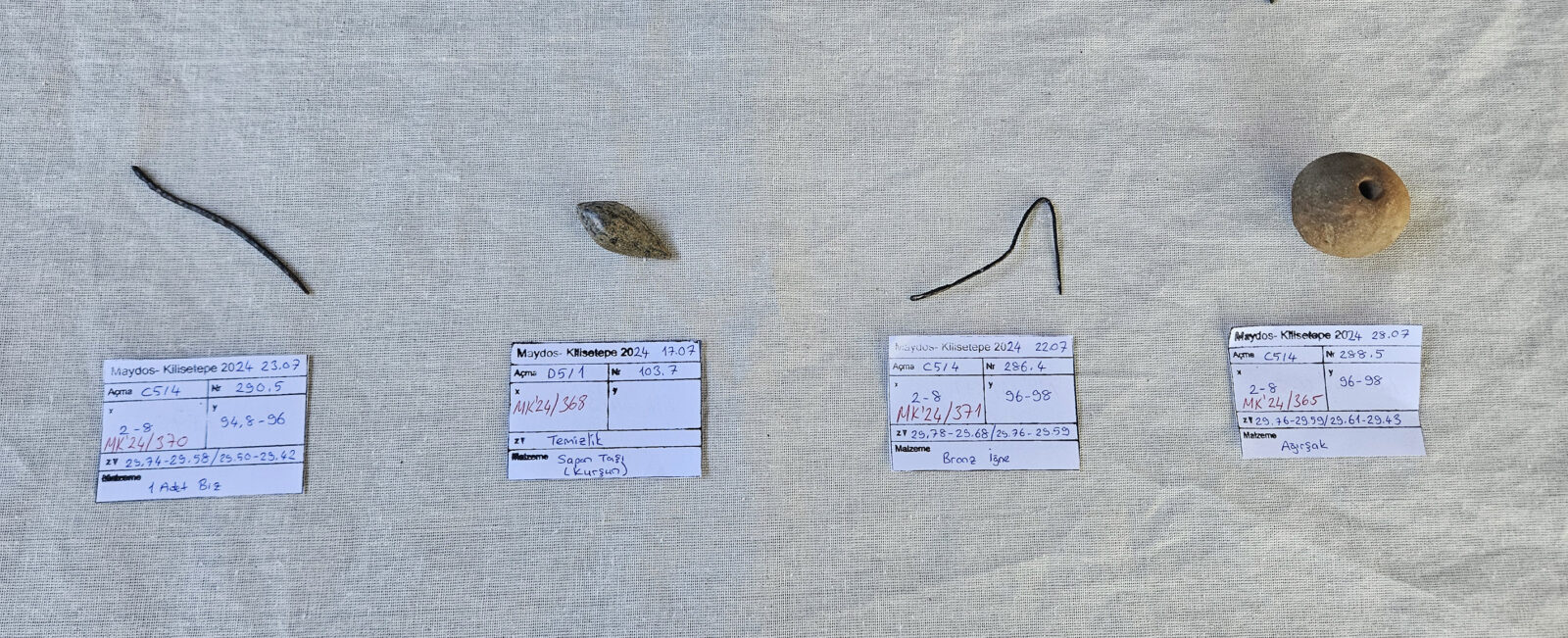3,900-year-old cylinder seal, rare sling bullet unearthed in Türkiye
 Archaeological excavations at the Maydos Kilisetepe Hoyuk in the Eceabat district of Canakkale, Türkiye, September 9, 2024 (AA Photo)
Archaeological excavations at the Maydos Kilisetepe Hoyuk in the Eceabat district of Canakkale, Türkiye, September 9, 2024 (AA Photo)
In a significant archaeological discovery, a 3,900-year-old cylinder seal and a 3,400-year-old lead sling bullet have been found at the Maydos Kilisetepe Mound in Eceabat, Canakkale.
This excavation, led by professor Goksel Sazci, chair of the archeology department at Canakkale Onsekiz Mart University, marks a noteworthy addition to our understanding of ancient civilizations.

Cylinder seal discovery: First in Europe
Sazci explained that cylinder seals of this kind, first seen in southern Mesopotamia, gradually made their way to Anatolia through trade routes by the end of the third millennium B.C.
The seal discovered at Maydos Kilisetepe represents the earliest example of this type of seal found outside Anatolia, and it is the first of its kind found in Europe. While similar seals have been found in Greece, they date to a slightly later period.

Lead sling bullet: Rare from Bronze Age
The lead sling bullet discovered is another remarkable find. These projectiles were typically made from stone or clay, with lead versions being extremely rare and mostly dating to the Hellenistic and Roman periods.
Their occurrence in the Bronze Age is scarce, with only a partial example found at Troy. These lead bullets were lethal weapons, capable of causing severe injury.

Insights into daily life and defense
The excavation team also uncovered various artifacts related to daily life during the Early Bronze Age, including pottery, metal tools, and weaving implements.
The research focused on the Troy-5 period, dating back to around 2000 B.C., providing valuable insights into the lives of people in this ancient settlement.

Sazci highlighted the historical importance of the findings to Canakkale’s rich heritage. The area is renowned for its role in the Gallipoli Campaign, and these discoveries add a new layer to our understanding of the region’s past.



